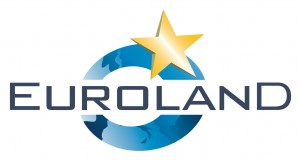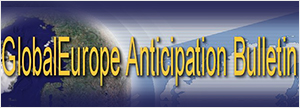Europe needs buzzwords to function. After terms like ‘Maastricht’ and the ‘Single Market’, two issues have come to dominate the European political debate over the last few years : the Euro and Enlargement. Both are equally important projects on the way to closer European integration, both are key events in their own right, but each for different reasons.
While the Euro stands for closer and deeper cooperation between the current EU member states, enlargement stands for a geographically and politically wider Europe, with initially less close cooperation, but which is expected to deepen over the years.
Yet despite the steadily growing magnitude of the current ‘enlargement debate’, expansion as such is not a new phenomenon to Europe. European history of the last fifty years has been one of continued expansion and of ever deeper integration, from its very beginnings in the early fifties up to now.
Although the term ‘historic’ has been somewhat overused in recent times, the current enlargement process constitutes nonetheless a unique moment in European history. Never before has such a large group of countries been admitted simultaneously to the European Union or its predecessors, never has the development gap between the existing and the new members been wider and never has the difference between mentalities and attitudes been greater.
The origins of the current enlargement process can be found in the end of the cold war and the fall of the Berlin wall which led to the end of the Europe of Yalta. As a result, enlargement of the European Union to the countries of the former Warsaw Pact has been under preparation for a little over ten years now. It started as an almost exclusively political project – the re-unification of our continent after decades of artificial division – and moved on to become a more technical process consisting in the adjustment of the legislation and rulebooks of the twelve candidate nations. Convergence has to be achieved in a variety of fields, from the economy over regulations to democracy. Yet the social adaptation process is just as important, given that the accession countries are experiencing a number of difficulties resulting from transition. And there is no doubt that the enlargement process will also have major implications for the existing member states and for the institutions of the European Union.
An informed debate on the goals, mechanisms and problems of enlargement will therefore have to deal with all of these aspects and should avoid being hijacked by narrow national and political interests, which unfortunately seems to be the case all too frequently.
{{The History of ‘Project Europe’}}
The history of the European Union has been one of continued expansion ever since the European idea re-emerged from the ruins of World War Two in an effort to avoid and prevent a recurrence of the horrible events of the past. As a result, the ‘Project Europe’ of an ever closer and ever deeper Union has rarely stood still.
From the creation of the European Steel and Coal Community (ESCS) in 1951, over the foundation of the European Economic Community (EEC) and Euratom in 1957 and the subsequent enlargement in four waves to Ireland, Britain, and Denmark; Greece; Spain and Portugal; Austria, Finland and Sweden, Europe went on to the Single Market in 1993, followed by Economic and Monetary Union in 1999 and the introduction of Euro coins and notes in 2002. The latter is an important event in its own right since it constituted a tangible step ahead for millions of Europeans on the road to European integration.
Yet apart from adding a bit more blue on the maps, the process of enlargement has also had a dynamism of itself. When in 1957, six states met to found the European Economic Community, one major European country was left out : Britain. This was mainly due to British wishes not to cut trade ties with (former) colonies and to her privileged relations with the US. Yet when, in subsequent years, British governments changed their minds and knocked on the doors of Europe, French national interest and pride initially did their bit to keep perfide Albion at bay. Then, as now, a common huffy British comment on enlargement was “it won’t happen, it won’t work, we don’t need it”. But eventually it happened and it worked. This could lead us to conclude that the current British opposition to the Euro coupled with simultaneous active British participation in the debate on the Euro and the Stability Pact, will eventually also end up with successful British adoption of the Single Currency.
{{The way forward}}
After the rapid progress of European integration over the last ten years and the completion of Economic and Monetary Union on 1 January 2002 with the introduction of Euro notes and coins, one legitimately feels entitled to ask today: Where is Europe heading now ?
At the beginning of the European integration process there was the unmitigated desire to overcome the causes and effects of the war and its divisive impact on Europe. The original driving force of Europe was therefore more dictated by political than economic motivation, given that the declared goal of Europe was and has been to maintain peace and create a space of prosperity and stability. Yet in the meantime the economic component has become at least as important, given the advantages of an all but unified economic space from Lapland to Crete.
The last few waves of enlargement therefore started largely as an economic-political project while the upcoming Enlargement process is an almost exclusively political project, whose economic impact on Europe as a whole will be small, with a host of social and cultural obstacles to overcome first.
{{Expanding Eastward}}
At the Copenhagen summit on 12-13 December 2002, the 15 member states of the Union decided to admit the first wave of new entrants from Central and Southern Europe on 1 May 2004, notwithstanding the still substantial economic and administrative shortcomings in many of the candidate states. Negotiations about accession, which were started in 1998 with the first group of applicants and in 2000 with the second group, were brought to a close at the end of 2002. This means that all outstanding issues, for which no transition periods were agreed, will have to be solved over the next twelve months. This constitutes a major challenge for the candidate states but also for the existing EU members given that over the next year, the Central European candidates must conclude the adoption of the over 80,000 pages of European Union acquis communautaire, bring their legal and financial systems in line with those in the rest of the EU, create an efficient civil service and clamp down on corruption. This will inevitably be a tall order for all parties involved, including the current EU member states and the European institutions.
Enlargement can only be successful if the existing EU institutions are thoroughly reformed. Initially designed for a small group of countries (10-12 members) with similar interests and a willingness to compromise, past enlargements have already shown the limits of the old system, leading to a gradual increase in majority voting in the legislating Council. The continuation of unanimous voting, still mandatory for some sensitive areas, would in the end lead to a total paralysis of the European project. This is why the Nice Treaty and the European Convention will try to ensure that the Union will not end in acrimony. Yet any change in the make-up of the European framework which might result in a perceptible loss of influence by any of the member states, big or small, always inevitably leads to long debates and weak compromises that as a rule do not mean much progress for the Project Europe.
The nervus rerum of the European debate usually centres on its EUR 100bn annual budget, to which all member states contribute proportionally to their GDP and from which they receive varying shares in return. The biggest contributors at present are Germany and France, while the biggest benefactors are France and Spain (in that order). The future of Europe inevitably (and unfortunately) hinges on the question of who pays and who gets how much. This implies that the two biggest budget items, the Common Agricultural Policy (CAP) and the structural funds (regional development) have turned into the eternal stumbling blocks of the Project Europe, together accounting for roughly 80% of EU spending.
Resolving the questions of future agricultural and regional assistance takes on a particular importance with regard to enlargement, given the impact these positions will have on the EU budget. This was clearly brought to light at last December’s Copenhagen summit when the old and new EU members haggled for several days over the future of EU finances. The final deal agreed amounted to EUR 40.8 bn in commitments or 25.1 billion in payments over the period 2004-2006, which was significantly less than the maximum ceiling fixed by the Berlin 1999 EU Summit. And over the three-year period, 14.8 billion of this sum will be covered by the new member states’ contributions, so that the net cost of enlargement for the EU-15 would be 10.3 billion over three years or 3% of total EU spending over these three years or 0.09% of EU GDP*. The annual cost of enlargement, if broken down by country (e.g. about 28% for Germany), will be almost irrelevant whe compared to the huge impact achieved by this undertaking.
The final agreement at Copenhagen also contained extraordinary budget facilities for Poland and the Czech Republic and the concession that the new members can ‘top up’ the maximum ceilings for direct payments to farmers out of national budgets. The Council also adopted an increase in pre-accession aid to Bulgaria and Romania.
A major shortcoming of the proposal is that concrete financial planning for enlargement has only been done until the year 2006. This could put the Commission and the existing member states in a tight corner over the next three years since by 2006, a new budgetary framework for the years 2007-2013 will have to be adopted, yet the discussions on the necessary reforms have still not begun. Although it was agreed at Copenhagen that spending on the Common Agricultural Policy (CAP) will be capped after 2007, the British, Dutch and Danish governments have all called for more wide reaching reforms, while France, Ireland and Spain (as biggest beneficiaries) are rejecting changes.
The future of Europe’s finances after 2007 therefore looks rather uncertain. According to several studies** published on the subject over the last year, the impact on EU finances can range from the manageable – if the EU’s main programmes are thoroughly reformed – to the outright catastrophic – if they go unreformed. To this have to be added the institutional questions already mentioned – and the challenges for Europe look clearly daunting. Among the many solutions proposed, one sticks out as being particularly sensible : the reinforcement of the principle of subsidiarity, i.e. states look themselves after matters they can handle best, e.g. agriculture. This would eventually also require a (welcome) strengthening of the role of the regions played in Europe and within the individual member states. All this will require major reform efforts on behalf of the governments of the EU 15, many of which do not yet seem ready for this important step.
{{The new Europe}}
On the other side of the line lie the twelve candidates who will accede to the European Union on 1 May 2004 (2007 for Bulgaria and Romania). Yet the challenges are just as daunting for them, with the adoption of 80,000 pages of acquis to be completed and sweeping economic and legal reforms to be enacted. Yet in the new member states, not only the ability to join matters, but also the ability to implement the relevant legal and 1 http://europa.eu.int/comm/enlargement 2 ING, Risks to the EU timetable, February 2002; DIW Wochenbericht 36/01, C. Weise, EU-Osterweiterung finanzierbar, Berlin, 2001; Dresdner Bank Economic Research, Herausforderung EU Erweiterung, May 2001 4 fiscal measures. And this is where the problems lie for many of the applicants. Apart from a financial and a technical issue, the fact of being all but taken over by the states and institutions of the European Union does not fill everybody with joy. Most of the negotiations can be reduced to the unconditional imposition of EU rules in the future member states, a circumstance resented by many in whose minds the days of the Warsaw Pact are still alive when everybody had to dance to Moscow’s harsh tune. (Now they have to dance to Brussels’ cacophonic music…) Yet apart from this possible resentment, there are also other, more profound matters that are likely to hinder a smooth integration of the new members into the European Union. Forty years of totalitarianism have left traces in people’s minds and mentalities that are not easy to wipe out within a few years. Apart from complying with economic and technical criteria, the new members will have to prove their capacity of mental integration, i.e. their ability to live and function smoothly within the framework of the Union. Yet this capacity cannot be dictated or formed over night. What is needed is a strong awareness of European values and their realisation. The transition to a truly united Europe is therefore likely to take considerably longer than is currently anticipated.
{{CONCLUSION}}
In order to make the upcoming enlargement a success, a lot more commitment and effort is needed by all those concerned, East, West and Brussels. Although it is undeniable that important projects such as Enlargement and the Euro initially seem remote from the individual citizen for having been designed top-down by Europe’s élites, these very élites should now endeavour to explain the necessity and use of these projects to the European public and thus help garner support for them by bringing them closer to the people. Whereas the creation of the Euro in 1999 seemed remote and theoretical to many, the launch of the notes and coins on 1 January 2002 was a far more tangible result of European integration. As regards enlargement, many in the current fifteen member states feel bypassed by the process since they have never been consulted about the issue. And yet it concerns and affects us all.
What is still absent in the minds of many, both East and West, is the feeling of belonging to one Europe, home to an overarching set of values, a common history and a shared destiny. This feeling of being European still has to be created in most European countries. Europe-wide debates and exchanges can go only some way towards the creation of such a feeling. And despite its low turnouts, the elections to the European Parliament are currently the only public consultation which comes nearest to the holding of some kind of a ‘European referendum’.
Successful integration will also require more commitment from the Western members of the Union. At present there is very little enthusiasm about, let alone support for Enlargement among those countries least concerned by the expansion of the organisation. Britons are second only to the French in objecting to enlargement***, many of whom are more concerned about financial concessions which have to be made to the new members (especially in the field of agriculture) than about genuine burden sharing and contributing towards making the upcoming enlargement a success. Making enlargement a success will therefore not be an easy task. It can only be achieved if all parties concerned cooperate and are willing to make sacrifices.
_________
{
* http://europa.eu.int/comm/enlargement
** ING, Risks to the EU timetable, February 2002; DIW Wochenbericht 36/01, C. Weise, EU-Osterweiterung finanzierbar, Berlin, 2001; Dresdner Bank Economic Research, Herausforderung EU Erweiterung, May 2001
*** Eurobarometer, http://europa.eu.int}


 LEAP2040 Toutes les informations et archives Europe2040
LEAP2040 Toutes les informations et archives Europe2040


